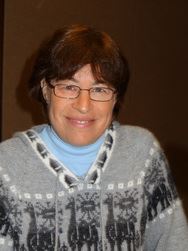Asilomar 2014
ΦBKNCA 28th Annual Asilomar Conference Report
Presidents’ Day Weekend, February 14-17, 2014
$73 of the $100 deposit you paid in 2013 for this Asilomar conference is tax deductible on your 2013 taxes
Sign Up For The Upcoming AsilomarFriday, 7:45 p.m. The Journey of Perplexus

Michael McGinnis, creator of the award-winning Perplexus games – often called “the world’s smartest toys” – aptly launched the conference with an account of his remarkable 35-year journey from an artistic idea of his teens, to international Game of The Year. Michael's work is a delightful tribute to curiosity, tenacity, and an unswerving refusal to be swayed from his creative path. A sculptor in complex geometric forms, Michael teaches art and design at Santa Rosa Junior College, and curates museum exhibits across North America and Europe. His interactive sculptural works, known collectively as Superplexus, can be found in museums and private collections around the world, and their cousins – the Perplexus games – continue to captivate (and frustrate!) would-be problem solvers of all ages.
Try to follow the ball as Michael moves
the Perplexus.
This is easier on a large image
Saturday, 9:30 a.m. Crossing the Bar? The Case of Jahi McMath
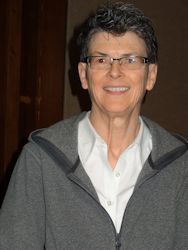
On Saturday morning our focus turned to more sobering thoughts when Dr. Margaret McLean, Director of Bioethics at the Markkula Center of Santa Clara University, considered the question presented by contemporary medicine in “Crossing the Bar – When is Dead, Dead?” The talk presented the complex issues surrounding the case of Jahi McMath, a 13-year-old girl who remains today in a state alternately described as life support, or mechanically-delayed demise. McLean provided a broad overview of the scope and methods of ethical inquiry, and raised far-reaching, provocative questions about the opportunities and limits of medical technologies today. Along the way, she educated us on the cultural, social and scientific background of this case, helping us see the difficulty of imposing a single set of answers on a family in crisis.
Director of Bioethics at the Markkula Center for Applied Ethics at Santa Clara University, Dr. Margaret McLean combines a background in science and ethics that has made her a leading commentator and consultant on the ethical dimension of advances in medicine and biotechnology. She writes extensively on genetics, cloning, and on ethical issues related to end-of-life care.
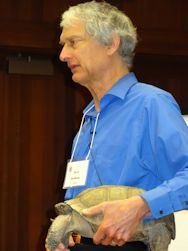
On Saturday afternoon, evolutionary biologist David Seaborg gave an account of the astonishing rate of worldwide species extinction, occurring today at a rate that far outstrips any natural extinction cycles in past human history. Seaborg presented compelling evidence that it is not natural cycles but in fact human intervention that disrupts habitats and climate with often disastrous consequences. Seaborg’s talk was enhanced by artifacts of life long since extinct – fossils of plant and animal forms – as well as living representatives of species potentially threatened by human actions. His tortoise and snake were enthusiastically received, and perhaps the first of their kind to grace a ΦBK Asilomar event!
Seaborg is the founder and President of the World Rainforest Fund, a nonprofit foundation dedicated to saving the earth’s tropical rainforests and to fostering biodiversity.
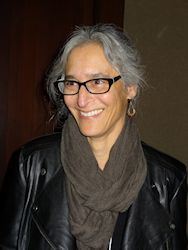
On Saturday night Dr. Mira Kopell, lecturer in film studies at U.C. Berkeley and a recipient of a ΦBK Teaching Excellence Award, provided not only outstanding entertainment but insights into the artistic possibilities and choices faced by directors in giving their own stamp to a time-honored work. In “Dead for a Ducat, Dead!” she presented five separate versions of the Hamlet story, told from remarkably different perspectives and with widely varying aesthetic directions. We learned about visual composition, lighting, camera angles, “power” positions, diagonal lines and so much more! Dr. Kopell’s talk stimulated a lively discussion, and no doubt inspired many to dust off our Hamlet texts and /or view the entire films when we are able.
Sunday morning, Dr. Lynn Rothschild of NASA Ames Research Center gave our brains a serious workout as she presented recent discoveries in astrobiology and explored future trends. Dr. Rothschild brought the study of extraterrestrial life from a “star wars” fantasy to the tough, real-world questions that inspire scientists and graduate students each day. Along the way, we were introduced to the extraordinary development of synthetic biology, with its potential to revolutionize our view of the evolutionary narrative that has played out on planet earth – and possibly elsewhere. Beyond earth, we looked at the challenges of biologically-provided life support, as we continue to explore the limits of our world.
Synthetic biology – the design and construction of new biological parts and systems and the redesign of existing ones for useful purposes – has the potential to transform fields from pharmaceuticals to fuels. The lab at NASA Ames explores the potential of synthetic biology to revolutionize all three major parts of astrobiology: Where do we come from? Where are we going? and Are we alone? Synthetic biology allows us to answer whether the evolutionary narrative that has played out on planet earth is likely to have been unique, or universal. In the future, synthetic biology will play an increasing role in human activities… On earth, in fields as diverse as bio-mining, human health and the industrial production of novel bio-composites. Beyond earth, we will rely increasingly on biologically-provided life support, as we have throughout our evolutionary history.
Dr. Lynn Rothschild, of NASA Ames Research Center and Stanford University, has been been instrumental in developing the field of astrobiology. Founder of the first three Astrobiology Science Conferences (AbSciCon), co-editor of the International Journal of Astrobiology, and former director of the Astrobiology Strategic Analysis and Support Office for NASA, she is currently focused on research in astrobiology and synthetic biology. Her field studies have taken her from sites such as Yellowstone National Park to Kenya’s Rift Valley, from New Zealand to Baja California and Bolivian Andes.
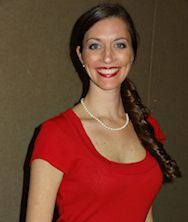
That evening we returned to the Forum to hear Dr. Alison Weiss, recipient of a ΦBKNCA scholarship award, present the results of her history dissertation. Dr. Weiss spoke eloquently of “A Plumb Craving for the Other Color: Race and sexuality in antebellum America.” She explored long-lasting, official, institutionalized mixed-race unions throughout America and among all social classes, and highlighted the romanticization of interracial sex – and especially with non-white women – in the antebellum American imagination. Her research suggests a sexual crisis between the contradictory Victorian ideals of virile white men and “passionless” white women – a crisis apparently resolved in the oft-fulfilled longing for relations with women unlike the wives and mothers who graced white American homes.
Recipient of a PBKNCA scholarship in 2013, Dr. Weiss credits her award for supporting the completion of her doctoral studies at U.C. Berkeley in 2013.
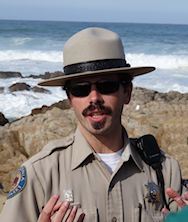
The conference ended with a Monday morning walk along the Pacific Coast dunes, led by Ranger Danny Rizzo who shed light on the plant and marine life, as well as the natural climate trends that had shaped the landscape we enjoy today. Spectacular weather encouraged us to extend our walk, leading many to explore the tidepools and beaches before heading back to the final meal of the weekend.

